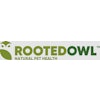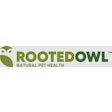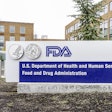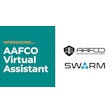The American Feed Industry Association (AFIA) has filed two sets of comments to the U.S. Food and Drug Administration (FDA) pertaining to the Food Safety Modernization Act. The comments addressed AFIA's concerns with the proposed rules on the foreign supplier verification programs and third-party auditor/certification bodies and provide the agency with suggestions for modifying the rules with the feed industry in mind.
In the first set of comments, which responded to FDA's Foreign Supplier Verification Programs proposed rule, AFIA said that one regulatory solution may not be appropriate for both human food and animal feed. "FDA has separated the human and animal food preventive controls rules," said the comments. "Although there will be a single Foreign Supplier Verification Program rule for food for humans and animals, FDA should consider different approaches for animal feed where appropriate."
AFIA also pointed out FDA's intent to align the FSVP rule with the various provisions of the animal food preventive controls rule, as required by international trade agreements. The organization said it intends to provide further full and in-depth feedback on certain aspects of the FSVP rule in correlation with their comments currently in development on the animal food preventive control rule. Such areas include the modified requirements for very small importers and very small foreign suppliers, and the section on hazard analysis.
The second set of comments responded to FDA's proposed rule on the "Accreditation of Third-Party Auditors/Certification Bodies to Conduct Food Safety Audits and to Issue Certifications." AFIA, although supportive of the development of an accreditation system that will increase the reliability of third-party food safety audits and certifications, said that the program might not achieve the number of participants needed to make it a viable system due to the onerous notification and reporting requirements proposed by FDA.
"We are particularly concerned about the heavy requirements that would be placed on consultative audits, which are an important tool by which companies find out what they may be doing wrong and improve their food safety practices," said the AFIA comments. "Any requirements that discourage use of consultative audits or constrain the free exchange of information between the auditor and the audited facility would be highly counter-productive."
AFIA's comments said FDA should give the term "a serious risk to the public health" a narrow interpretation, and that the preamble of the proposed rule insinuates FDA believes the FDA notification requirements of an accredited auditor/certification body should apply to both Class I and Class II recall situations.
"AFIA believes this broad interpretation of the notification requirement is problematic … If FDA were to require notification of every condition that could result in a Class I or Class II recall, the agency would be flooded with notifications of minor conditions," said the comments. "Such an overbroad notification requirement would also deter many eligible entities from using accredited auditors/certification bodies."
AFIA had originally requested all three proposed rules have the same comment deadline, and said it intends on submitting further comments on both proposed rules in their comments on the animal feed preventive control proposed rule, which are due March 31.
















